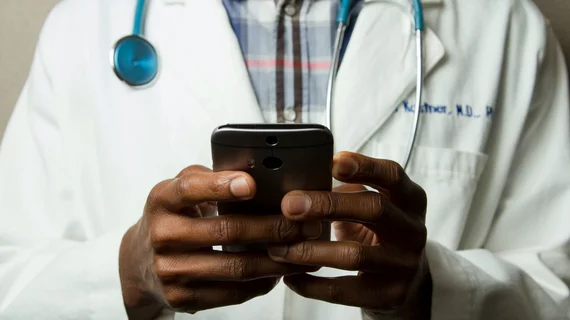Immediate radiology report access leads to influx of patient questions for 78% of providers
Many health systems have responded to federal information-blocking rules by removing traditional radiology report embargo periods. But new evidence shows immediately releasing reports can lead to a cascade of calls from anxious patients, burdening busy rad departments.
Massachusetts General Hospital now automatically releases rad reports to patients via online portals, ditching its seven day wait period back in October 2020 to comply with the 21st Century Cures Act. The Boston healthcare giant recently surveyed more than 4,500 referring providers to determine how the move has affected daily practice.
Overall, 78.3% said a patient had contacted them with questions regarding report findings and 84% of those respondents experienced a spike in patient calls over the past 60 days. Half of all providers altered their workflow to handle this influx, experts reported Monday in Current Problems in Diagnostic Radiology.
The feds have yet to finalize penalties for information-blocking, but the researchers cautioned that eliminating embargo periods overnight may have unintended consequences.
“The increased patient calls to providers is concerning given that the inbox volume of patient call messages has been demonstrated to be the most significant predictor of physician burnout,” William A. Mehan, Jr., MD, MBA, and co-authors with the Department of Radiology at MGH, warned in the study.
The Office of the National Coordinator for Health IT implemented rules prohibiting information-blocking in May 2020, ultimately mandating providers comply with provisions by April 5, 2021. For radiology, this means delaying patients’ access to their reports could constitute info-blocking and result in fines. The specific practices that are in violation of the rule remain unclear, the authors noted.
MGH sent a 12-question online survey to all of its referring providers, gathering 249 responses (a small sample size and limitation of the study) between December 15, 2020, and January 8, 2021. Patients often contacted providers because they were alarmed by findings and due to a lack of report clarity, the results showed.
Based on feedback from the respondents, the researchers are planning to develop a patient-focused radiology glossary webpage with plain-text translations of complex report terms. They’re also creating a disclaimer statement for the online portal notifying patients that their results are still being reviewed.
“Practices contemplating the removal of their report embargoes in response to the information-blocking provision of the Cures Act should be aware of the potential impacts on patients and referring providers and consider strategies to mitigate patient anxiety and provider workflow disruption as discussed,” Mehan and colleagues concluded.
Read the full study here (paywall).

